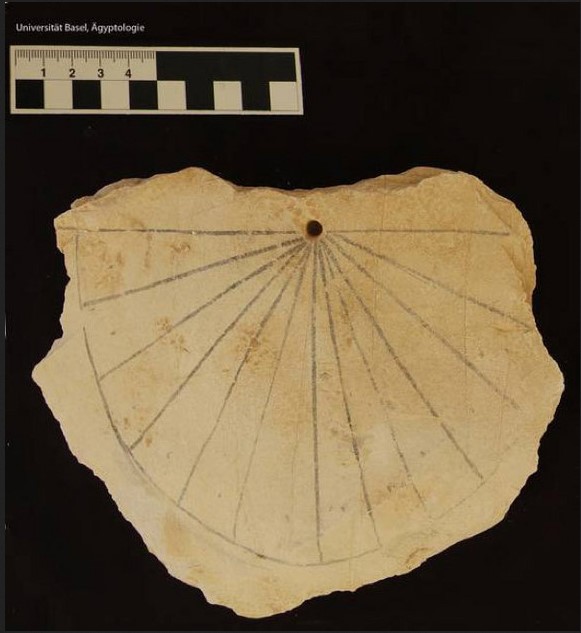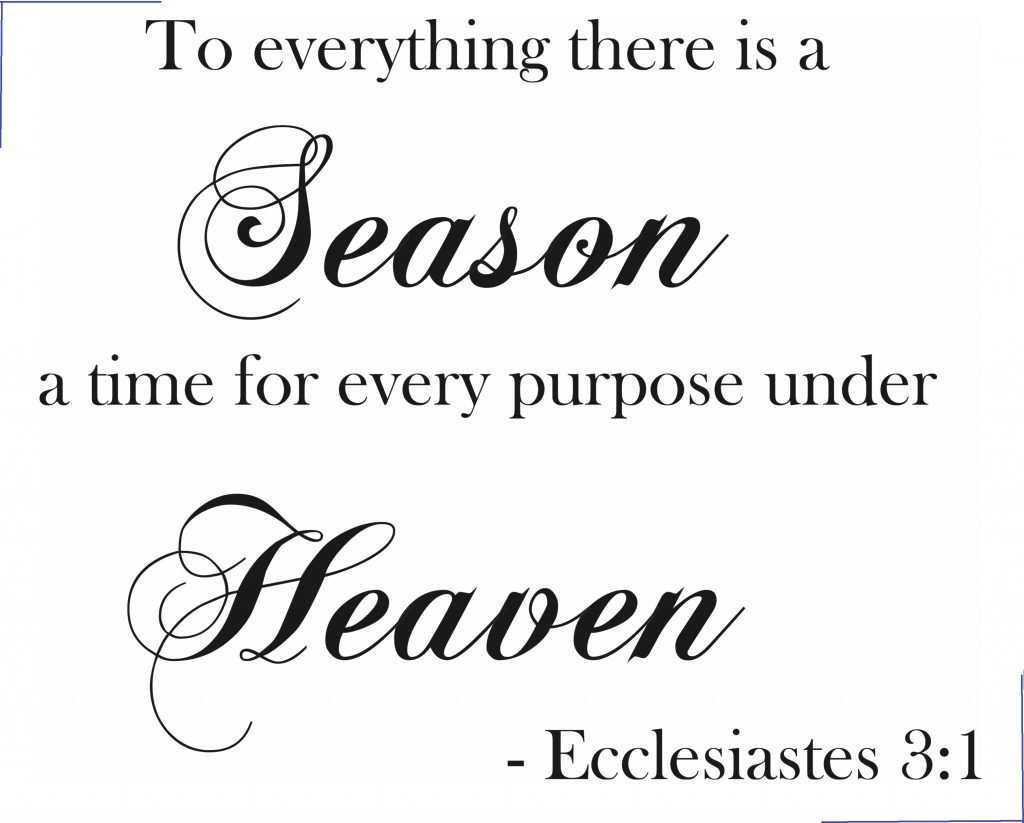According to the Book of Genesis, God created the universe, the heavenly bodies, the sun, the moon, and the stars, in six days. But according to contemporary cosmologists the universe began with a great explosion known as the Big Bang, after which the stars and galaxies slowly formed over billions of years.
The concept of time was created for humanity by God in Genesis 1:14-19 on His fourth day of creation.
2 Peter 3:8 says one day of God’s time is like a thousand years of man’s time. Therefore, Genesis 1, it is not telling us that God created in six 24-hour days. Each day in God’s time might just be a reference to long periods of time on the Earth. Linear progression of time could not be measured until the sun, moon, and stars were created, in day four. There is no telling how many years is spanned in the time before day 1 and in days 1-3.
The human measurement of time began with the invention of sundials in ancient Egypt sometime before 1500 B.C. However, the time the Egyptians measured was not the same as the time today’s clocks measure. For the Egyptians, and indeed for a further three millennia, the basic unit of time was the period of daylight.

God’s perspective of Time
God’s perspective of time has generated a great amount of theological and philosophical reflection. The traditional view has been that God is timeless in the sense of being outside time altogether; that is, he exists but does not exist at any point in time and he does not experience temporal succession.
God’s inner life is sequential and, therefore, temporal, but his relation to our temporal sequence is “all at once.” In a sense, God has his own timeline. His time does not start at just one point in our timeline. God’s time does not map onto our time at all. God is “omnitemporal” meaning that God is not in our time, but He experiences temporal succession in his being.
To God, time is not money but life. The Lord knows the indispensability of time, hence the warning to man to redeem time because days are evil. Each day witnessed in life is a gift from God. Therefore, it behooves every believer to manage time wisely to maximize opportunities.
God Works Through Waiting
God is above time. And when it seems as though He is late, we need to remember: God is never late. He is always on time. We may lose sight of God, but He never loses sight of us.
God uses waiting to increase our trust in him and loosen our perceived control. Waiting reminds us we’re at the mercy of God’s timing, and we have no power to change that.
A powerful verse of scripture is in Psalms 31:15 as David says “My times are in Your hand; Deliver me from the hand of my enemies, and from those who persecute me.”
The Beginning of Time
According to the standard big bang model of cosmology, time began together with the universe in a singularity approximately 14 billion years ago.
1.7 billion years ago the day was 21 hours long and eukaryotic cells emerged. Multicellular life began when the day lasted 23 hours, 1.2 billion years ago. The first human ancestors arose 4 million years ago when the day was already very close to 24 hours long.
Mineral-laden water emerged from a hydrothermal vent on the Niua underwater volcano in the Lau Basin of the southwest Pacific Ocean. The microorganisms that live near such plumes have led some scientists to suggest them as the birthplaces of Earth’s first life forms.
The Biblical Earth’s Age
According to the Bible’s genealogical records, combined with the Genesis 1 account of creation, the estimated age of the earth and universe is about 6000 years, plus a bit of uncertainty on the completeness of the genealogical records, allowing for a few thousand years more.
Note: I, Rev. Dr. J. Mike Howington, believe there are a little more than a few thousand years of uncertainty. Time as we know it did not begin until the fourth day of creation. And we do not know if the label of “a day” applies to the beginning of that era, midway through that era, or the end of that era. Before then God labeled a day as the completion of certain stages of creation. There is no certain way of knowing how long those three individual eras lasted. Each era could have a different number of today’s years – making them plus or minus millions of years.
There could be millions of years between Genesis 1:1 and Genesis 1:2. And there could be millions of years between the first sentence of Genesis 1:2 and the second sentence of Genesis 1:2. We would have to believe in a very powerful All Mighty God to believe that God started creation and created light in one day. What a Mighty God We Serve! (A hymn I proudly sing, published in more than a dozen hymnals, listed as by Anonymous.)
On the first day, God created light in the darkness. On the second, He created the sky. Dry land and plants were created on the third day. On the fourth day, God created the sun, the moon, and the stars. The amount of time between, and before, each of those four stages is immeasurable.
But four centuries ago, Bishop James Ussher of Dublin (1581-1656) calculated our planet’s birthdate. Ussher was an archbishop and a professor at Trinity College in Dublin. Using clues from the Bible, he decided that Earth was born at 9 a.m. on Oct. 23, 4004 BC on the proleptic Julian calendar, near the autumnal equinox. From 2022, that would make Earth 6026 years old.
To be precise, Bishop Ussher said that only the earth was created on October 23. The heavens were made a day of uncertain length, earlier. The genealogies back through the history of the Bible might be accurate, but accuracy cannot be guaranteed back through the six days of creation. The Bible’s creation story is accurate if you consider that we cannot know God’s exact timetable.
Numerous efforts have been made to determine the biblical date of creation, yielding varying results. Besides differences in interpretation, the use of different versions of the Bible can also affect the result. The dates were calculated from the genealogies in two versions of the Bible, with most of the difference arising from the two versions of Genesis. The older dates stem from the Greek Septuagint. The two dominant dates for the creation of the earth, using such models, are about 6000 BC and about 4004 BC.
The Age of Adam, Eve, and the Bible
Using variations to create a more reliable molecular clock, disclosed that Adam lived between 120,000 and 156,0000 years ago. A comparative analysis of the same men’s mtDNA sequences suggested that Eve lived between 99,000 and 148,000 years ago.
The earliest portion of the Bible was written, through the Holy Spirit’s inspiration, over 3,500 years ago (from 2020). The first five books of the Bible are attributed to Moses and are commonly called the Pentateuch (literally meaning “five scrolls”).
There Is A Time For Everything

One of the most encouraging verses in the Book of Ecclesiastes, chapter 3, which has a great deal of information about time says, “There is an appointed time for everything. And there is a time for every event under heaven.” (Ecclesiastes 3:1)
The Book of Ecclesiastes acknowledges that if we could understand why things happen, difficult circumstances would be easier to deal with.
The ups and downs of life are normal and part of God’s plan and we must keep an eternal perspective without having all the answers.
There is Even A Time for God
Even for God, there is “a time to be silent and a time to speak.” (Ecclesiastes 3:7) He did not reveal Himself all at once. He chose to make Himself known gradually over many centuries. God spoke to our forefathers in many “portions and in many ways.” (Hebrews 1:1) 1
How God revealed himself was also determined by Him. At times God’s revelation was external, such as in a voice, an event, a cloud, or an angel. Occasionally the revelation was internal, in a dream or vision (Exodus 13:21, 22; Numbers 12:6, Daniel 9:21, 22; Acts 9:3, 4). 2
Ecclesiastes’ Listing of Facets of Life
Ecclesiastes’ list of times, or seasons, describes the different seasons and facets of life. It casts a dark shadow because it reminds us of the inevitability of trouble and evil, and the relentless monotony of life. In Ecclesiastes 3:2-8 there is a listing of 28 “times” arranged in 14 pairs of opposites. Every time has a purpose. 3
These verses serve as a reminder that our circumstances will change and we can expect the changes in our lives. Whatever God takes us through has purpose, perhaps to deepen our faith or to help us achieve a breakthrough in an area of life.
“Everything under heaven” refers to the present world and the limits of what it offers. (Ecclesiastes 3:1) “A time” is divinely appointed (Psalm 31:15; Proverb 16:1-9). 4
Humans have little or no control over times and changes. The eternal God sovereignly determines all of life’s activities (Ecclesiastes 3:1-22). 4
The message in the poetry of Ecclesiastes 3 centers on God’s ultimate authority in heaven and on earth. Humans have mastered many things in this world, but some elements of our existence are beyond our control. We cannot conquer time. God is the one who appoints each moment.
Therefore, we must prepare our hearts to receive whatever comes our way so that our faith would not be shaken by the seasons of life. The season may attempt to undermine our faith and trust in the Lord. That is why God identifies Himself in the pages of Scripture as the author and perfecter of our faith.
Ecclesiastes Chapter 3 also shows that wicked people are in the places that good people should be occupying, and they act without justice, corrupting things that should be just. Even though Solomon, in Ecclesiastes, says he doesn’t know if there’s life after death—although he believes in God—he says that the good and the bad will, somehow, be rewarded or punished.
Poetry of Ecclesiastes 3
In Ecclesiastes 3:2-8 there is a listing of 28 “times” arranged in 14 pairs of opposites. In those 14, the reiteration of the words, “A time… a time… a time,” indicates the sense of the monotony of all things, rather than their variety. The repetition becomes oppressive. Our real masters seem to be these inexorable seasons: not only those of the calendar but those of the tide of events.
Birth and death, the boundaries of life are mentioned first.
The events move us to one kind of action which seems fitting, then to another which pulls us into reverse. A bad facet answers each good facet. King Solomon, who authored the Book of Ecclesiastes, understood that though there are good things in life, the bad things can’t be escaped.
In Summary
The Book of Genesis starts with God creating the universe, the heavenly bodies, the sun, the moon, and the stars. But according to contemporary cosmologists, the universe began with a great explosion, after which the stars and galaxies slowly formed over billions of years.
The concept of time was created for humanity by God in Genesis 1:14-19, on God’s fourth day of creation. God’s perspective of time has generated a great amount of theological and philosophical reflection.
But the Holy Spirit inspired Moses to write Genesis in, about 3,500 years ago, the vernacular that the people of Moses’ time used and understood.
An encouragement in the Book of Ecclesiastes, chapter 3, begins with, “There is an appointed time for everything. And there is a time for every event under heaven.” (Ecclesiastes 3:1)
The Book of Ecclesiastes acknowledges that if we could understand why things happen, difficult circumstances would be easier to deal with. The ups and downs of life are normal and part of God’s plan and we must keep an eternal perspective without having all the answers.
In Ecclesiastes 3:2-8 there is a listing of 28 “times” arranged in 14 pairs of opposites. Every time has a purpose. 5 (Morris, Defenders, Pg.988) These verses serve as a reminder that our circumstances will change and we can expect the changes in our lives. Whatever God takes us through has purpose, perhaps to deepen our faith or to help us achieve breakthroughs in an area of life.
______________Affiliate link – SHOP: _______________
_This ad is for my favorite version of The Bible _
_____but click on it to go to the whole store______


NASB Comfort Print Thinline Bible, Red Letter Edition–bonded leather, burgundy (click here)
By Zondervan
The beloved 1995 Edition of the New American Standard Bible is now easier to read with Zondervan’s exclusive NASB Comfort Print® typeface. This edition of the NASB Thinline Bibles is available in a variety of sophisticated designs in a portable, easy-to-read format.
- The full text of the New American Standard Bible, 1995 Edition
- Exquisite, durable covers
- Less than one inch thick
- Double-column format
- Presentation page
- Two satin ribbon markers
- Words of Christ in red
- Exclusive Zondervan NASB Comfort Print 9 point type
Features:
____________________________________________
In conclusion, consider what the Daily Bread email message sent on 3/29/2023 says,

Ecclesiastes 3:1 – There is an appointed time for everything. And there is a time for every event under heaven (NASB)
If we could understand why things happen, difficult circumstances would be easier to deal with. The ups and downs of life are normal and part of God’s plan and we must keep an eternal perspective without having all the answers.
The list of appointed times serves as a reminder that our circumstances will change and we can expect the changes in our lives. Whatever God takes us through has purpose, perhaps to deepen our faith or to help us achieve breakthroughs in an area of life.
You Can Receive The Daily Bread, for FREE.
To receive the Daily Bread email messages, free on Mon., Wed., and Fri., in your email inbox, just fill in the form below or send an email, and ask to be added, to jmikeh@jmhowington.com
References:
1 Stanley M. Horton, general editor, Systematic Theology (Springfield, MO: Legion Press, 1994) pg. 64
Note: Rev. Dr. Horton was an Assemblies of God (Pentecostal) minister and is recognized as Pentecostalism’s “premier theologian.” (1916-2014)
2 Ibid, pg.64
3 Morris, Henry, The New Defender’s Study Bible (Nashville, TN: World Publishing Inc, 1995 and 2006) pg. 988.
Note: Dr. Henry M Morris, Ph.D., LL.D., Litt.D. (1918-2006) was an American young Earth creationist and the founder of the Institute for Creation Research (ICR) and is considered by many to be “the father of modern creation science”, 1918-2006)
4 “NIV,” – International Bible Society, The Holy Bible, New International Version, International Bible Society, (Zondervan Publishing House copyright 1973, 1978, and 1984.) pg. 1008, 1010
5 Morris, Henry, pg.988
